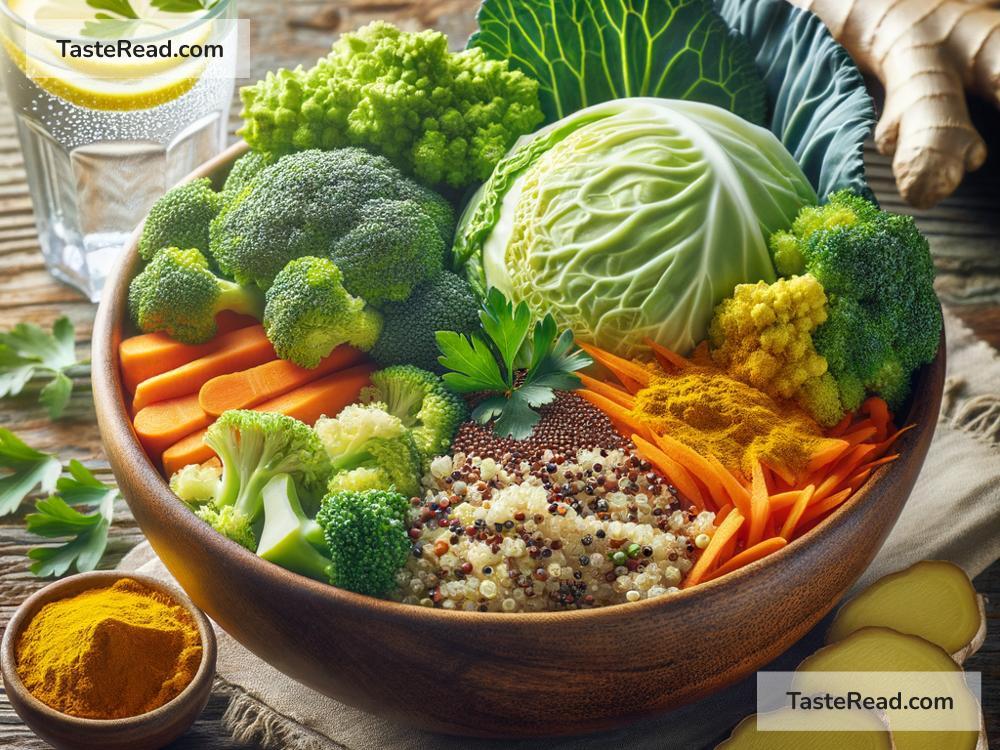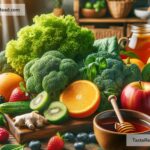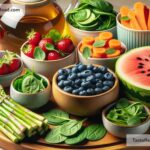Foods That Reduce Risk of Ulcers
Stomach ulcers, also known as peptic ulcers, are painful sores that form in the lining of the stomach, small intestine, or esophagus. They’re often caused by an infection with the bacterium Helicobacter pylori or by long-term use of nonsteroidal anti-inflammatory drugs (NSAIDs). Symptoms may include burning stomach pain, bloating, nausea, and even heartburn. While medical treatments are necessary to cure ulcers, eating the right foods can help reduce the risk of developing ulcers in the first place.
Here’s a simple guide to foods that may help safeguard your stomach and promote a healthy gut.
1. Fiber-Rich Foods
Fiber is one of the best nutrients for maintaining a healthy digestive system. It helps regulate digestion and reduces acid levels in your stomach, which can minimize the chances of developing ulcers.
Foods like whole grains (oats, brown rice, quinoa), fruits (apples, pears, berries), and vegetables (broccoli, carrots, and spinach) are naturally rich in fiber. These foods also nurture the gut lining and reduce inflammation.
For example, oatmeal with a handful of fresh fruits is a soothing breakfast that keeps your stomach full without irritating the digestive tract.
2. Probiotic-Rich Foods
Probiotics are beneficial bacteria that support the health of your gut and reduce the risk of harmful bacteria like Helicobacter pylori taking hold. Adding probiotic foods into your diet can improve digestion and promote healing if your stomach lining is at risk of ulcers.
Try incorporating yogurt (with live cultures), kefir, sauerkraut, kimchi, or miso into your meals. These foods strengthen your stomach’s natural defenses. For example, a cup of probiotic-rich yogurt for a snack or dessert can be a great addition to your daily diet.
3. Foods High in Vitamin C
Vitamin C is an antioxidant that strengthens your immune system and helps your body fight infections, including Helicobacter pylori. Studies have shown that people with higher vitamin C levels are less likely to develop ulcers.
Fruits like oranges, strawberries, kiwis, and papayas are loaded with vitamin C. Vegetables such as bell peppers, broccoli, and kale also contain this essential nutrient. Adding a fresh fruit salad to your meals or sipping on a glass of homemade orange juice can be both refreshing and stomach-friendly.
4. Honey
Honey is not just sweet—it’s packed with natural healing properties. It has antibacterial capabilities that may help fight Helicobacter pylori and reduce inflammation in your stomach lining. Honey also contains antioxidants that support overall gut health.
Use honey as a natural replacement for sugary snacks or drizzle it over oatmeal, yogurt, or toast. Start your day with a spoonful of honey in warm water or herbal tea for a soothing boost.
5. Green Tea
Green tea contains antioxidants like catechins, which are known to protect the stomach lining. Additionally, green tea may help inhibit the growth of Helicobacter pylori, reducing your risk of ulcers.
Consider replacing sugary beverages or caffeinated drinks with a warm cup of green tea a few times a week. While green tea is gentle on the stomach for many people, avoid drinking it excessively, as too much caffeine can have the opposite effect.
6. Foods with Flavonoids (Natural Plant Compounds)
Flavonoids are plant-based compounds that protect the stomach lining by reducing inflammation. They are known for their ability to inhibit the growth of Helicobacter pylori.
Some flavonoid-rich foods include berries, apples, grapes, kale, and green tea. You can eat them as snacks, blend them into smoothies, or cook them into healthy recipes.
7. Garlic
Garlic is another powerful food with natural antibacterial properties. Some studies suggest that garlic may help combat Helicobacter pylori and reduce your risk of ulcers.
While garlic is safe for most people, eating it in moderation is key, as excessive quantities may cause stomach discomfort. Add chopped garlic to soups, stir-fries, or roasted vegetables for flavor and health benefits.
8. Almonds and Other Nuts
Almonds and nuts like walnuts and cashews are good sources of healthy fats, fiber, and protein. They help balance stomach acidity, which may reduce irritation and prevent ulcers.
Grab a handful of almonds as a snack or sprinkle chopped nuts over your salads to give your meals a crunch that’s easy on the stomach.
Foods to Avoid
While adding ulcer-preventing foods into your diet is great, it’s equally important to avoid foods that may irritate your stomach. Spicy foods, alcohol, caffeine, and acidic foods like citrus fruits (in excess) can increase ulcer risk or worsen existing symptoms. Fried or fatty foods can also be hard on your stomach lining.
Wrapping It All Up
Ulcers can disrupt your day-to-day life, but the right foods can help protect your stomach and reduce your risk of developing them. Fiber-rich foods, probiotics, honey, green tea, fruits, and vegetables are not just tasty—they promote a healthy digestive system. Combine these foods with a balanced diet, avoid trigger foods like alcohol and spicy meals, and consult your doctor if you notice symptoms like burning stomach pain or nausea.
By making thoughtful food choices, you can keep your stomach happy and safeguard your gut for years to come!


